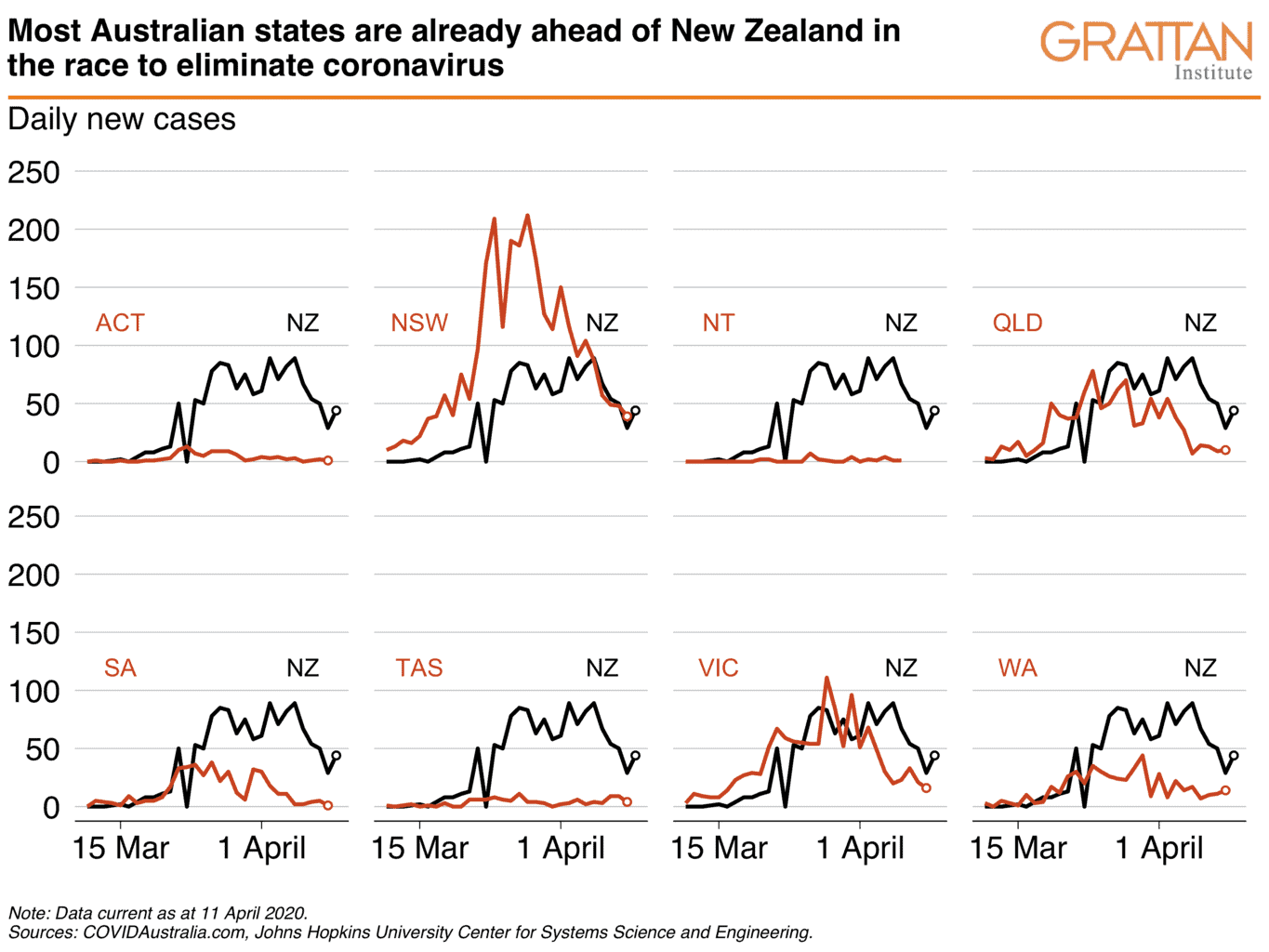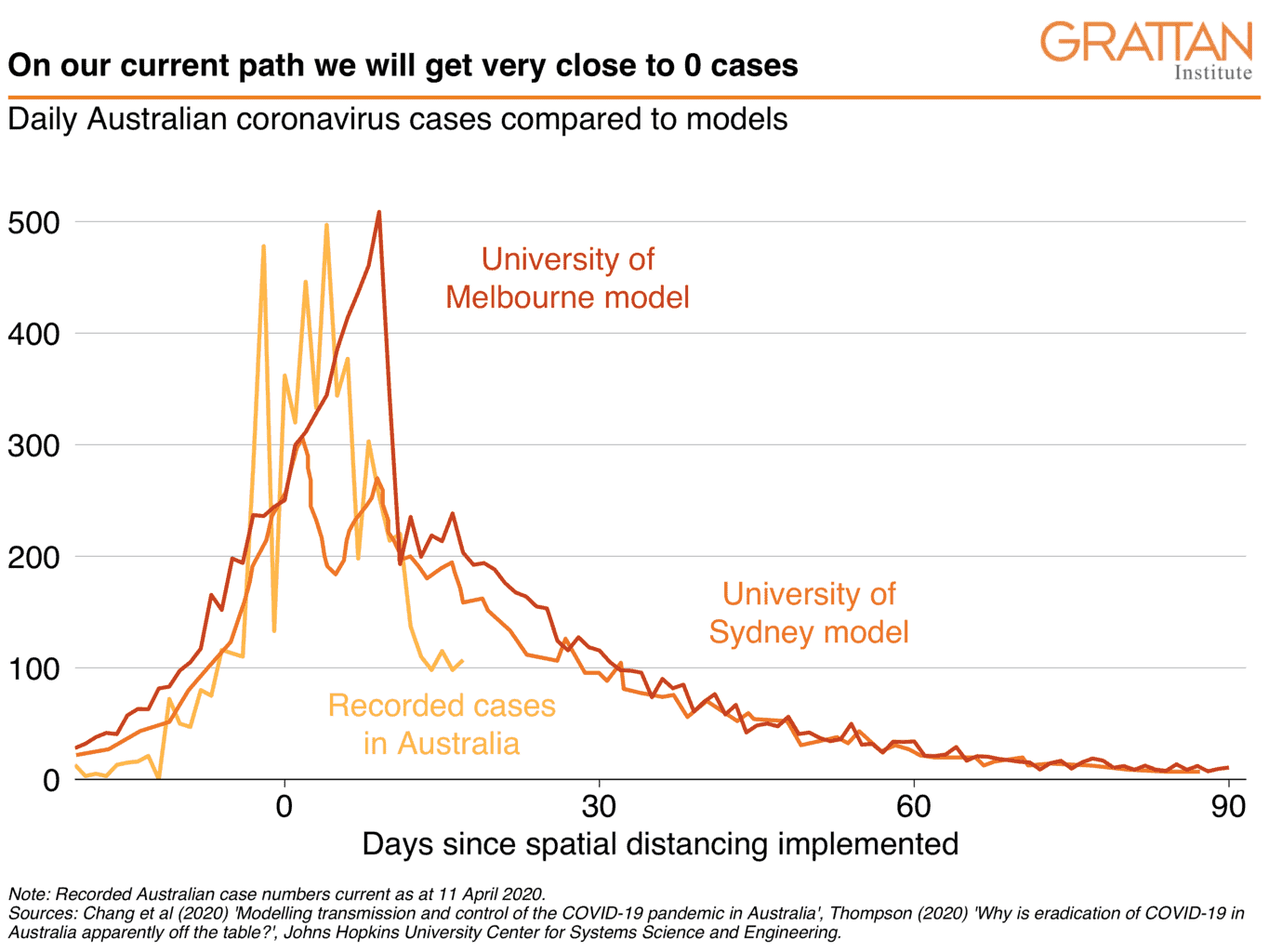New Zealand is beating coronavirus. They are the envy of the world – with a realistic chance of eliminating COVID-19 from the country within the next couple of months. A week ago it seemed impossible that Australia could join the Kiwis, but a growing body of evidence shows that if we can hold the course for a little while longer we could beat the virus too.
Australia is not far behind New Zealand in daily coronavirus cases, and we are catching up. We are currently recording about 100 cases a day, which is only slightly more than New Zealand’s peak of 87 a week ago. Most individual states in Australia are already ahead of New Zealand, and if they stay the course and keep Stage Three restrictions going they could beat New Zealand to 0.

Growing epidemiological evidence points to the possibility of eliminating coronavirus. Recent modelling by the University of Sydney found that with spatial distancing the virus could be all but gone from Australia by the second week of June, and improved contact tracing could probably prevent a resurgence of the disease.
Separate modelling published on Friday by researchers at the University of Melbourne reaches the same conclusion. And New Zealand modelling previewed by Jacinda Arden on Friday suggests that country has a better than even money chance of being COVID-19 free by late June, just two-months away.

In contrast, early modelling released by the Doherty Institute for the Australian Government was designed to model healthcare capacity and did not consider scenarios with the degree of spatial distancing we are achieving in Australia today. While it was helpful in preventing a catastrophe, It does not help us understand if eliminating COVID-19 is possible in Australia, and by when.
The prospect of 90 days of Stage Three restrictions is daunting, but there are good reasons to believe we could bring cases down to zero earlier than that. The University of Sydney and the University of Melbourne models simulate enough spatial distancing to halve the number of coronavirus cases roughly every 16 days. But for the past week Australian cases have been halving every 4.2 days. Even if that trend slows over the next few weeks, there’s a real prospect that many states could begin easing spatial distancing as early as May, with a clear plan in place by Anzac Day.
Getting from ‘nearly 0 cases’ to 0 cases is the toughest part of the elimination strategy. We would need to trace down every single case, isolating and testing all the people they might have come into contact with. Some towns or suburbs might need to stay on Stage Three restrictions for longer to stamp out the last remaining cases, and some schools might have to be closed again if cases flare up. We would need to quarantine international arrivals until a coronavirus vaccine is found.
But a successful elimination strategy would give most Australians a good chance of resuming a near-normal life well before the end of the year. If we succeed, crowds could return to the MCG in time for the Boxing Day Test.